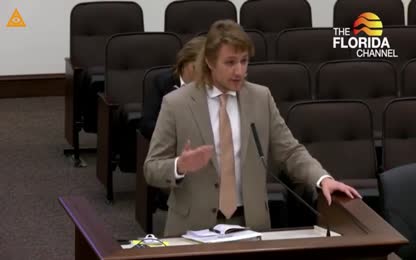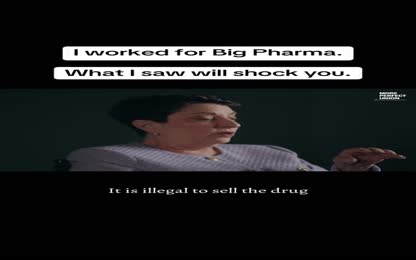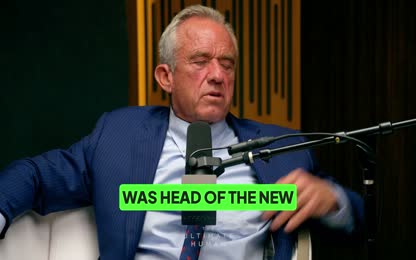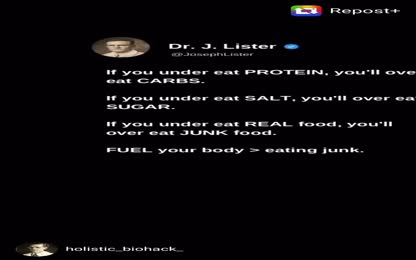Advertisement
Dr Peter Gøtzsche exposes big pharma as organized crime - Dr. McDougall Health & Medical Center
Dr Peter Gøtzsche exposes big pharma as organized crime - Dr. McDougall Health & Medical Center
- Category: Big Pharma /FDA Approved /CDC,Conspiracy Exposer,Exposing / Uncover,Explain / Clarify
- Duration: 07:42
- Date: 2020-09-13 14:55:49
- Tags: no-tag
3 Comments
Video Transcript:
My name is Peter Gertjajim, Director of the Nordic Cochrane Center in Copenhagen, a professor of research, design and analysis at the University of Copenhagen. Two years ago I found out that our prescription drugs are the third leading course of death after heart disease and cancer. Our drugs kill around 200,000 people in America every year, and half of these people die while they do what their doctors told them. So they die because of the side effects. The other half die because of errors. And it's often the doctors that make the errors because any drug may come with 20, 30 or 40 warnings, contraindications, precautions and so on. No doctor in the world knows about all this. So they give patients drugs that they should not have given them, that interact dangerously with other drugs or food items or so on. And then the patients die, that's the other half. So the other thing I found out two years ago was that much of what the drug industry does fulfills the criteria for organized crime in U.S. law. And they behave in many ways like the mafia does. They corrupt everyone they can corrupt. They have bought every type of person, even including ministers of health in some countries. So there is a huge amount of corruption. In my country, for example, Denmark, we are regarded as having very little corruption. But yet we have thousands of doctors on industry payroll, although we are just 20,000 doctors. So this is an effective kind of corruption. The drug industry buys the professors first, then chiefs of department, then other chief physicians and so on. They don't buy junior doctors. So when several thousand S.R. on industry payroll, it's really, really bad. And that's why I wrote my book, Deadly Medicines and Organized Crime, How Big Pharma has corrupted healthcare. I hope to convince patients not to take so many drugs because so many die from the drugs they take. In my country, people take so many drugs that every single citizen can be in treatment with one and a half drugs from the are born till they die. This is incredible. And drugs are not that helpful. And they kill very many of us. We know that. That's why drugs are the third major killer after heart disease and cancer. So what we need in the coming years is to take far fewer drugs than what we do currently. If we did that and we were careful, then we could live longer and live better lives. Because drugs have many side effects and patients often don't realize that when they become worse, that it could be a side effect of the drug, which they continue taking because that's what their doctors tell them. So when I was a specialist in internal medicine, what I very often did was that I stopped a lot of drugs, particularly in elderly people. And it's quite revealing to see a better written elderly person come into your ward. And when you stop the drugs, I mean that person becomes many years younger. And many of these drugs affect the brain. And old people tolerate that very badly. They fall and when they break a hip, a quarter of them die. And for example, antidepressant drugs are used in more than 10% of our elderly. And they seem to kill 3% of them every year. I mean, if 100 old people take an antidepressant for one year, 3% of them will die because they fall and break their hip. This is a huge death rate. So a lot of other drugs, antidepressants also make people fall and kill them. And they may affect your cognition, your memory on all these things. And then they interact in ways that we know almost nothing about. Very many elderly, they take more than 5 drugs a day. And we actually don't know how these drugs interact with each other. What we do know is that all drugs have many effects in the body. And some of them interact also in their metabolism so that you can get a too high concentration of a drug. It should take other drugs simultaneously. So we make a lot of harms that we don't even recognize. I have a pretty colorful collection of things people have called me during all these years. And sometimes journalists have asked me, why do you always look up controversy? And my reply is, I don't. Controversy looks me up because it's not popular to tell the truth in healthcare. You will get a lot of enemies because a lot of people make money on false premises. Doctors in industry alike. And our drug regulators and our politicians, they are on board on this wagon. So very few people are independent of money in healthcare. And of course I have attacked a lot of holy cows during my career and people have screamed loudly. In a French journal I was called a statistical mastobist because I showed with statistics that mammography screening didn't work and things like that. And I was even accused of scientific mist conduct by the association of the Danish pharmaceutical industry which was completely ludicrous. It was harassment from beginning to end. They came with vague arguments that we cannot recognize the conclusions in your study. And they could have come up with numbers and said these numbers are wrong. They didn't do anything. It was only harassment. It lasted 18 months, I think, the whole thing. And then when we were acquitted I made sure that this nasty behavior was described in the British medical journal. So after that they haven't come so much after me, the Danish drug industry. And when my book about organized crime came out they just lied about it as they always do. That my examples were old, they went back 90 years and so on. But you know where I demonstrate that what the 10 biggest companies do is organized crime. These examples they were from within the last 10 to 15 years. That's not old examples and the crimes have increased because when crime pays you will have more crime. That's how capitalism works.









 Donate
Donate







